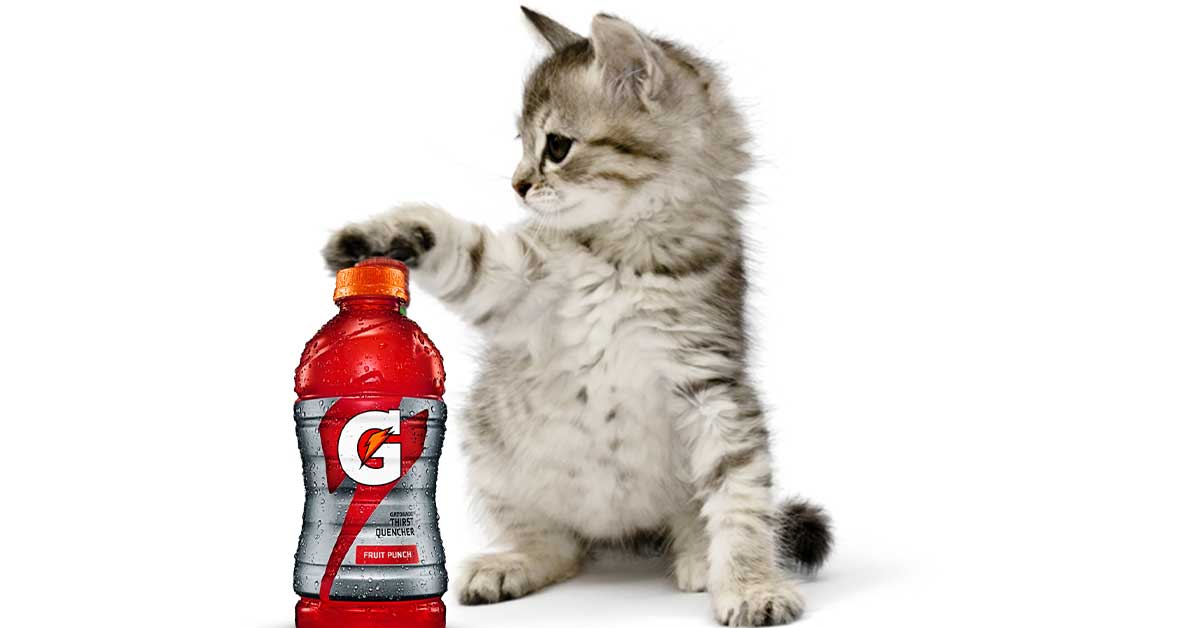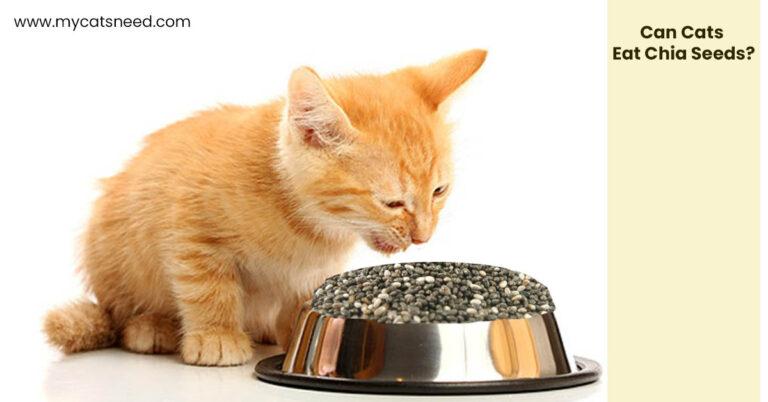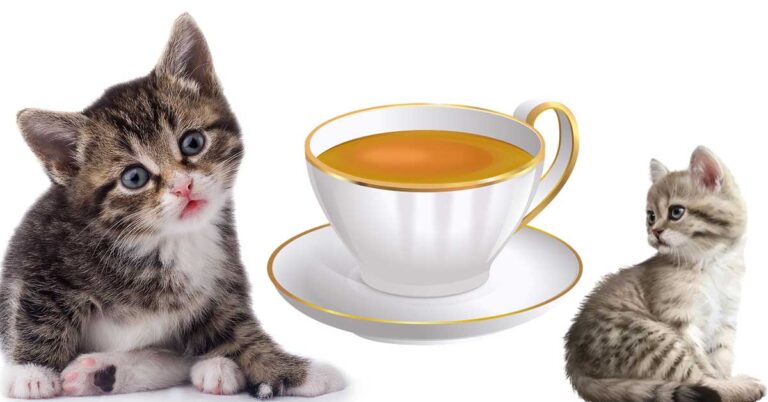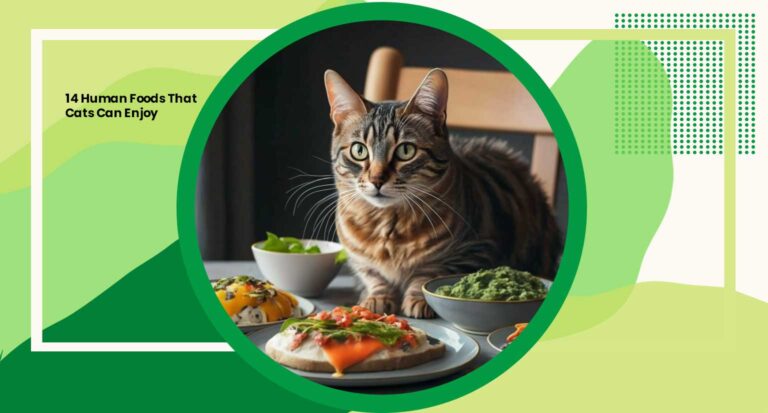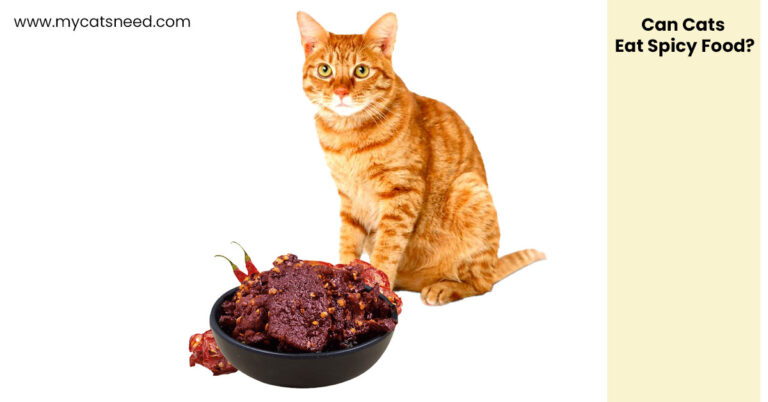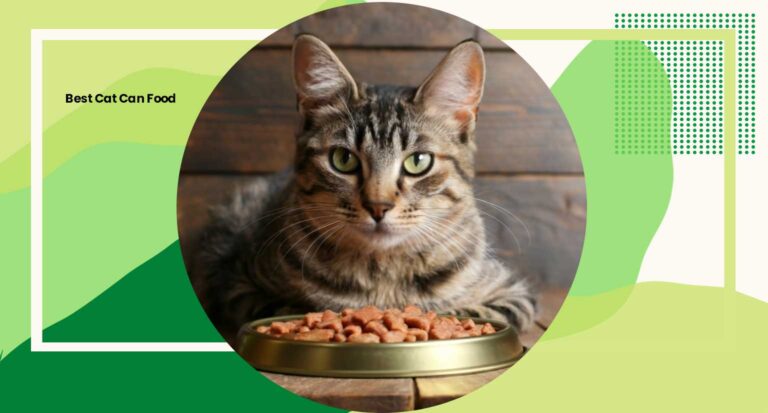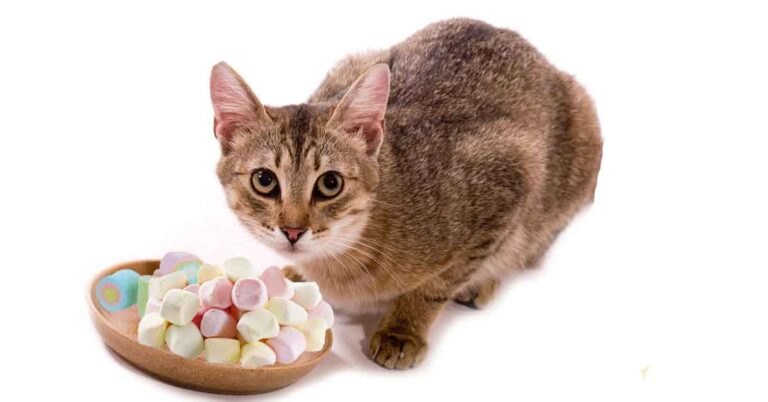Can Cats Drink Gatorade
One question often pondered by pet owners, specifically cat owners, is “can cats drink Gatorade?” While this bright blue sports drink may be the go-to remedy for human dehydration and a source of quick energy, is it the best option for our feline friends?
Gatorade, like many other sports drinks, is designed for human consumption, boasting high sugar content and electrolyte replenishment properties that may not necessarily benefit a cat’s body the same way.
This article provides a closer look at the possible effects Gatorade can have on domestic cats, and explores healthier alternatives for keeping our furry friends properly hydrated, especially in hot weather.
Understanding Cat Hydration Needs
Unlike humans, domestic cats are obligate carnivores, getting most of their essential nutrients and moisture from wet food. They do not require as much water as we do on a daily basis, but that doesn’t mean their hydration needs should be neglected. Ensuring a cat’s water intake is adequate is essential for its health and well-being. Dehydrated cats may experience health problems such as urinary and kidney issues.
In hot weather, or when a cat has increased physical activity, its hydration needs can increase. Cat owners must be vigilant to prevent mild dehydration from escalating into more serious health issues. Clear signs of dehydration in cats include dry mouth, skin tenting, and lethargy. If such symptoms are observed, immediate veterinary care is needed.
A simple water dish or a cat fountain providing clean water is usually the best way to meet a cat’s hydration needs. Cats are more likely to drink if their water source is clean and fresh. However, if a cat doesn’t seem to be drinking enough water from its bowl or fountain, pet owners may need to consider other options.
Dehydration Signs
It’s essential for cat owners to recognize the signs of dehydration in their feline companions. Mild dehydration may manifest as dry mouth, loss of appetite, or reduced activity. A dehydrated cat may also exhibit signs of lethargy, and their skin may lose its elasticity, a condition commonly referred to as skin tenting. Other more severe symptoms of dehydration could include sunken eyes, rapid heart rate, and, in extreme cases, even shock or collapse.
These are all indicators that your cat is not getting enough water, and immediate action is necessary. Consulting a vet is the safest and most effective course of action in cases of severe dehydration.
Water Intake Essential
Proper hydration is vital for a cat’s health. It not only aids in digestion but also supports kidney function and helps maintain a healthy body temperature. Water is even more crucial when your cat is on a dry food diet, as they receive little to no moisture from their meals. If your cat is consuming mostly dry food, they will need a consistent source of clean water to ensure they are getting enough hydration daily.
So, how much water should a cat drink? The general rule of thumb is that a cat should drink roughly 3.5 to 4.5 ounces of water per 5 pounds of body weight daily. However, this can vary based on factors like diet, weather, and the cat’s overall health. Regularly monitor your cat’s water dish or cat fountain to ensure they are getting the essential hydration they need.
Consequences of Dehydration
Dehydration in cats can lead to serious health problems if not addressed promptly. Prolonged lack of sufficient water intake can result in urinary tract issues, kidney failure, and electrolyte imbalances. Electrolytes are essential minerals that play key roles in many of the cat’s bodily functions. Any imbalance could therefore affect your feline friend’s overall health.
Excess salt, as found in sports drinks like Gatorade, can exacerbate dehydration and lead to high blood pressure and other medical conditions. Too much sugar, another primary ingredient in Gatorade, can cause gastrointestinal upset and other negative effects. Therefore, while Gatorade might seem like a good idea for a dehydrated human, it is not necessarily the best fluid for a dehydrated cat.
Gatorade: A Brief Overview
Gatorade is a popular energy drink primarily designed for athletes and physically active individuals. Its purpose is to replenish lost electrolytes and provide quick energy through its high sugar content. It contains essential electrolytes like sodium and potassium, along with other ingredients like citric acid, sodium citrate, and monopotassium phosphate. Additionally, Gatorade comes in various flavors, all of which contain artificial flavorings and coloring.
While this formula may work for humans who have lost a significant amount of water and electrolytes through sweating, it’s not the best option for cats. Cats have a different metabolic system compared to humans, and certain ingredients in Gatorade might harm a cat’s body in the long run. The high sugar content, for instance, is not suitable for cats as it can lead to health issues such as obesity and diabetes. Additionally, the high salt content can lead to electrolyte imbalances and other health problems.
Dangers of Gatorade for Cats
Although Gatorade was designed to aid in rehydration and energy replenishment in humans, it’s not a safe option for our feline friends. The high levels of sugar and artificial sweeteners, along with the excess salt, can pose significant health risks to cats.
The high sugar content can lead to obesity, diabetes, and other health issues in cats. Unlike humans, cats lack the necessary enzymes to break down sugar effectively, which can also lead to gastrointestinal upset.
Moreover, the high sodium content in Gatorade can lead to salt poisoning in cats. Cats’ kidneys aren’t equipped to process large amounts of salt, and consuming too much can lead to dehydration, high blood pressure, and kidney damage. In severe cases, it could even result in neurological problems or be fatal.
Artificial flavorings and colorings in Gatorade are also not recommended for cats. These ingredients can cause allergic reactions and other side effects. In conclusion, while a little Gatorade might not harm your cat immediately, regular consumption can lead to serious health problems in the long run.
Can Cats Have a Little Gatorade?
Given the potential dangers of Gatorade for cats, it is generally best to avoid giving it to them. However, in cases of severe dehydration where a cat refuses plain water and immediate veterinary care is not accessible, small doses of Gatorade may provide temporary relief. It’s crucial to understand that this should not be a regular practice and it’s not the best solution for a dehydrated cat. Even small amounts of Gatorade can contribute to health problems over time due to the high sugar and sodium content.
Also, be cautious of blue Gatorade or any brightly colored versions, as the artificial coloring can be harmful to cats. If all else fails, and a small amount of Gatorade is given, opt for less sugar or sugar-free options. Again, Gatorade, even in small doses, should only be a last resort and not replace proper veterinary care. Always consult with a vet for the best advice on managing your cat’s dehydration.
Safe Hydration Solutions for Cats
Ensuring that your cat has access to plenty of fresh water is the most straightforward way to prevent dehydration. Regularly changing the water in your cat’s water bowl or investing in a cat fountain to encourage more drinking are practical steps.
In addition to plain water, you could offer your cat other hydration sources. Chicken or bone broth (unsalted and without onion or garlic) can be an appealing option for cats. Wet food is another great way to increase your cat’s water intake as it contains up to 80% water and can significantly contribute to their daily hydration needs.
Electrolyte solutions specifically designed for cats are also available in the market and can be used under the guidance of a vet. These solutions are formulated keeping in mind a cat’s nutritional needs and metabolic capabilities, thus offering a safer alternative to human sports drinks like Gatorade.
Remember, while hydration is essential, it’s possible for cats to consume too much water, leading to a condition called water intoxication. Therefore, the best option is to consult with a vet regarding the optimal amount of water and other fluids your cat should consume.
When to Consult a Veterinarian
If your cat shows signs of dehydration or any other health problems, it’s crucial to consult a veterinarian immediately. While mild dehydration can be managed at home by encouraging your cat to drink more water or offering them a wet food diet, severe dehydration requires immediate professional attention.
Similarly, if you notice changes in your cat’s drinking habits, such as consuming too much or too little water, it’s wise to seek veterinary advice. Changes in water intake can sometimes signal underlying health issues. A vet can guide you on the best course of action and provide suitable treatment options if necessary.
Remember, it’s always better to err on the side of caution when it comes to the health and well-being of your furry friend. Regular veterinary check-ups can help keep track of your cat’s health and prevent potential issues from escalating.

